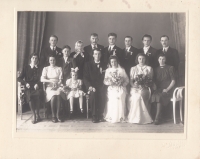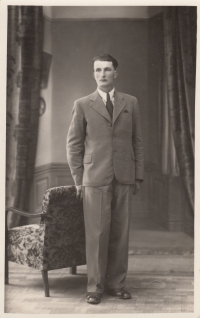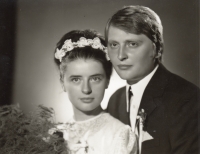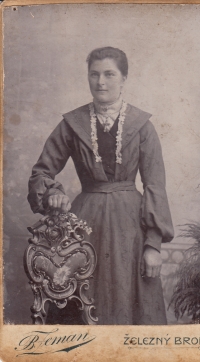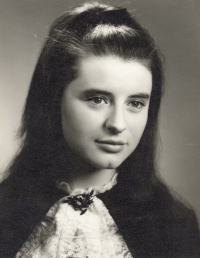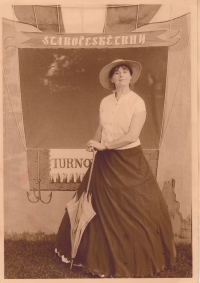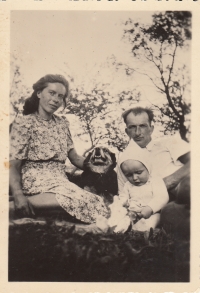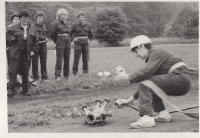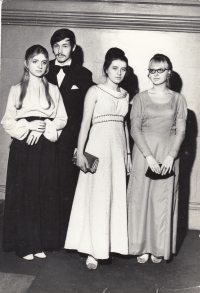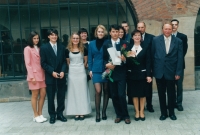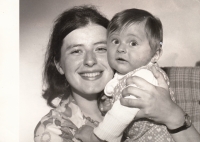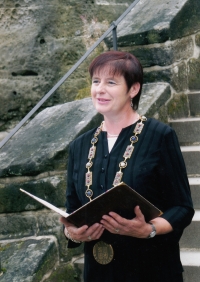It was a beautiful sight to see the red star falling down

Stáhnout obrázek
Eva Kordová, née Vlčková, first saw the light of this world on the 29th of November in 1951 in Turnov, during the difficult times of the 1950’s. Her parents were farmers and they owned a small farm in the nearby village of Klokočí. With pressure, threats, and by unattainable raise of their production quota, the local authorities tried to make them join the Unified Agricultural Cooperative. Oldřich Vlček kept it no secret that he disagreed with the ruling régime and that he listened to Radio Free Europe; there were several denunciations in that sense. This was all entered in his children‘s dossiers and it would disable them from getting any education beyond primary school, the comrades’ opinion was that Eva, a gifted girl, should be a cow carer. The school administration however issued her the needed credential for a secondary school and managed to get it accepted. During the liberation in the 1960‘s, it seemed that Eva could go and study at a university but her hopes were squashed by the invasion of the Warsav Pact armies and the following normalisation. In 1968, Eva helped her aunt with organising a petition against the occupation, a year later, she and her schoolmates staged a protest on the first anniversary of the occupation in the form of a sports show. After graduating from the secondary school, Eva wanted to go and study Czech and Latin language at the Charles University in Prague but her dossier prevented that. With an intercession from a member from the entrance exams committee, she was allowed to enrol an institute of library science and teaching. After finishing her studies there, she worked shortly in the Liberec library, from 1970, she has been working in the Turnov library where she still worked in 2021. She organised events for families with children, senior or disabled citizens. From 2002, she was continuously a member of the Turnov city council and one of the most popular clerk to officiate weddings.
